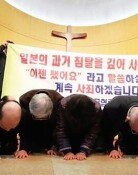Notes Reveal Assemblys Hiring Criteria
Notes Reveal Assemblys Hiring Criteria
Posted November. 28, 2005 05:44,
Dong-A Ilbo has analyzed the shorthand notes from National Assembly personnel hearings for about 30 candidates for high-ranking public positions who went through the assemblys plenary session hearing and voting process from June 2000 to November 2005.
It was found that questions about opinion on political issues at that time accounted for the largest share of the questions asked of the candidates, 23.3%, or 483 questions out of a total of 2,073.
In addition, 352 of the questions (17.0%) were morality-related, regarding suspicions of real estate speculation, evasion of military service, and tax evasion. Questions about past personal histories accounted for 14.2% or 293 questions, and 131 questions, or 6.3%, were about personal information. In short, questions about personal issues accounted for 37.5% of the total.
Meanwhile, only 179 questions, or 8.6%, were related to job performance ability. Questions about candidate opinions on the public agencies in question that served as measures to indirectly check candidates job performance abilities numbered only 425 (20.5%), accounting for less than a third of the total.
Assembly vice-speaker Kim Deok-kyu (Uri Party), who served as the chairman of National Assembly special committee for personnel hearings, said, It is true that personnel hearings are focused on personal issues. Due to the lack of barometers to gauge job performance ability, it is difficult to see how well-qualified the candidates are.
Since there is no preliminary investigation system to look into morality and personal integrity, hearings often end up delving into issues that have previously been brought up by the press or civic groups. Judgments on the issues are decided largely by the press, since there is no yardstick for judgment to conclude whether candidates are qualified for public positions or not.







